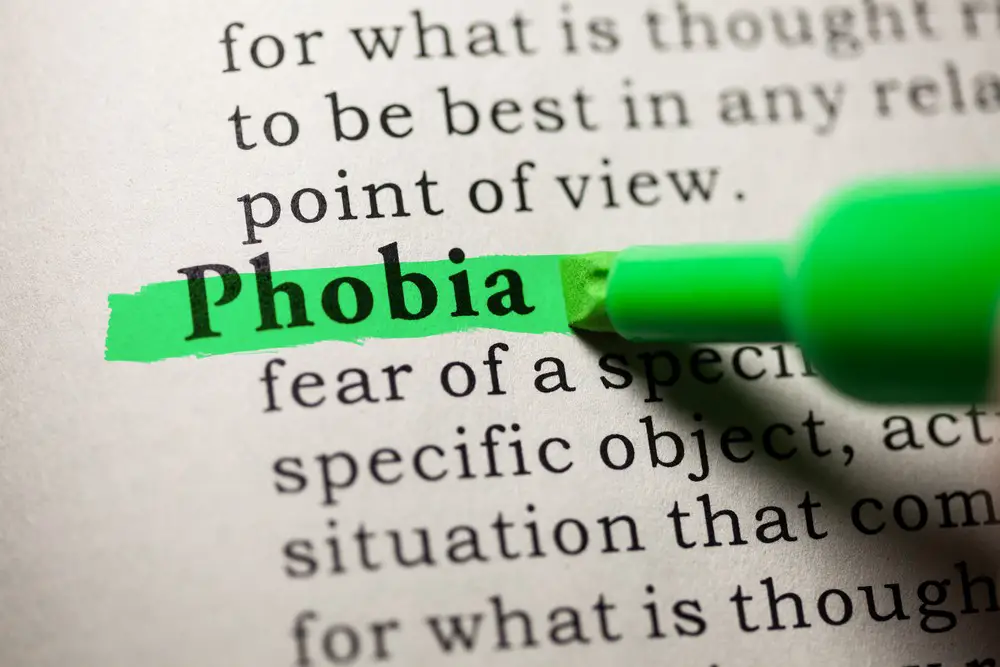As a BetterHelp affiliate, we receive compensation from BetterHelp if you purchase products or services through the links provided
Megalophobia, or the intense fear of large objects, can cause stress, anxiety, and panic attacks in its sufferers when they encounter any large object. These include airplanes, buildings, ships, mountains, statues, etc. Some people may fear just one type of large object, while others may have their symptoms triggered by anything huge. Like most phobias, megalophobia is often linked to another underlying anxiety.
Even though the fear of large objects can’t cause its sufferers any harm, their fear can cause extreme nervousness and anxiety, affecting their way of life. Fortunately, several effective strategies and resources can help them manage their symptoms and reduce the impact of their phobia.

Coping With Fear of Large Objects
Psychcentral describes the difference between fear and phobia. Fear is natural, and it’s even a good thing. However, that is not the case with a specific phobia like the fear of large things. Phobias have a devastating and disrupting effect on the lives of their sufferers because it stops them from doing certain things or visiting certain places.
Therefore, it’s natural to have some anxiety when using an elevator in a skyscraper, but it’s unrealistic to avoid going into or living in an area with tall buildings.
Besides psychological anxiety, phobias can also cause physical reactions. These include the following:
- Dizziness
- Nausea or upset stomach
- Fast heartbeat
- Shortness of breath
- Sweating
- Shaking
- Tingling or numbness
- Fear of going mad or dying
- Feeling disconnected
- Panic attacks
The DSM-5 doesn’t recognize the fear of large objects as a separate disorder. However, its symptoms fall under the diagnostic criteria for a specific phobia, and it’s usually diagnosed by a mental health professional member when the symptoms are present for six months or more.

Causes of Megalophobia
It’s believed that phobias are linked to other anxiety disorders. These may include generalized anxiety disorder (GAD), social anxiety, or post-traumatic stress disorder. However, more studies are needed before researchers confirm the same applies to the fear of large objects.
As to the causes of megalophobia, psychologists believe genetic, environmental, and traumatic events involving a large object can cause fear. Similar conditions to the fear of large things include thalassophobia (the fear of large bodies of water) and agoraphobia (the fear of public spaces). Sometimes phobias occur alone, but in some cases, they can occur with other phobias.
Strategies and Resources for Coping with the Fear of Large Objects
There are several strategies and resources for coping with megalophobia. As with all other phobias, one or a combination of therapies can help address the underlying causes. In severe cases, medications can help relieve the symptoms.
1. Exposure therapy
Exposure therapy uses visuals and controlled real-life exposure to large objects to help “desensitize” and help individuals overcome their fear. The theory behind exposure therapy is to take small steps toward lessening the person’s fear under the supervision of a mental health professional.
2. Cognitive Behavioral Therapy (CBT)
CBT can assist people with megalophobia in learning how to replace their upsetting thoughts with more normal ones. Psychotherapy helps them learn strategies to help influence their perceptions and how their brain reacts to seeing big objects.
3. Support Groups
It’s difficult to pinpoint how many people fear large objects since people with specific phobias often don’t seek help. However, the Cleveland Clinic estimates that between seven and ten percent of the population in the U.S. have some phobia.
Whether a person seeks help from a mental health professional often depends on the severity of their symptoms. One of the best ways to improve their coping mechanisms, with therapy or without, is to find support from others with a phobia. There are several online or local support groups, and you can find them on several online platforms, including Sesh and CircleUp.
4. Medications
Medications can help relieve symptoms of megalophobia, like anxiety and fear, but their effects are only temporary. A doctor may prescribe sedatives or beta blockers to help people continue their daily activities. Still, most therapists discourage their use because they can affect their natural response to therapy.
5. Coping Techniques
Therapies can help someone overcome their phobia. Sometimes, a doctor may prescribe medications to help a person cope with the symptoms of fear of large objects if these are severe. Besides drugs, there are also several other coping strategies to try.
Coping techniques cannot help the person overcome a phobia like the fear of large objects, but they enable them to manage their anxiety or stress levels.
Some of the best coping methods include meditation, journaling, breathing exercises, calming music, yoga, and enjoying a walk outside. Choosing a coping method depends on the individual because they don’t work the same for everyone.
Finally, a person with megalophobia can also cope better when they see their therapist regularly, maintain their social lives, keep in contact with family and friends, get enough sleep and exercise, and follow a balanced diet.
Prognosis for Fear of Large Objects
It’s believed that only about 25% of people seek help for a phobia, even though it prevents them from living a normal life. Researchers have shown that most phobias respond well to therapies. Moreover, people who don’t seek help for their phobias, including megalophobia, double their chances of developing depression or anxiety disorder.
Final Take
If you have megalophobia, you can avoid large objects, but the relief you feel is only temporary. Getting a diagnosis and treatment is the first step to a better life.
The good news is that the fear of large objects is easier to manage than most people think. Just like with all other phobias, you need the help of a mental health professional if you want to improve the quality of your life.
Additionally, it’s far easier to find help than most people think. You can seek recommendations from your primary care doctor, friends, and family or look for one through the American Psychological Association. If you prefer to search online for a suitable therapist, check their client testimonials. It’s in your power to claim control of your life.
What is megalophobia?
Megalophobia is a specific phobia that refers to the fear of large objects, including statues, bridges, or buildings. It is an irrational and intense fear that can cause physical symptoms such as trembling, sweating, and difficulty breathing.
What are some strategies for coping with megalophobia?
Strategies for coping with megalophobia include exposure therapy, cognitive behavioral therapy (CBT), support groups, medications, and coping techniques such as meditation or journaling. It’s important to seek professional help to address the underlying causes of megalophobia.
Is megalophobia genetic?
The exact cause of the fear of large objects is still unknown, but genetic, environmental, and traumatic events involving a large object can cause fear. Thus, megalophobia may be linked to genetics in some cases.
What is the prognosis for megalophobia?
The prognosis for megalophobia is positive if you seek help from a mental health professional. Research has shown that most phobias respond well to therapies. Furthermore, not seeking help for your phobia puts you at risk of developing depression or anxiety disorders.
Start searching for help today to take back control and confidently live your life.
- Stress Management: What is the Relationship Between Stress and Addiction? - June 28, 2024
- Exploring Techniques to Maintain a Healthy Lifestyle without Drugs - May 28, 2024
- How Acupuncture Helps Treat Chronic Fatigue Syndrome - May 28, 2024
This site contains affiliate links to products. We will receive a commission for purchases made through these links.



